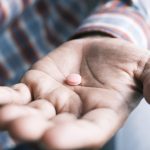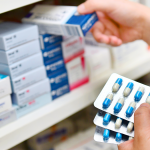Federal budget initiatives to improve access to medicines
As part of the $104 billion investment into health in 2019–20 in the latest Federal Budget, the Federal Government has provisioned $40 billion in the forward estimates for medicines. Here’s a snapshot of the budget investments into medicines for 2019.
- $40 billion provisioned in the forward estimates for life-saving and life-changing medicines, averaging 31 new or amended listings per month – approximately one per day.
- $15 million allocated for a one-off increase to community pharmacy to continue providing support to consumers, to improve the safe use of medication.
- $331 million allocated for new and amended listings on the PBS, including medicines to treat lung, bladder, kidney and skin cancer as well as leukaemia.
- $230 million allocated for an ongoing additional administration, handling and infrastructure fee and community service obligation payments to pharmacies.
- $458.3 million from 2018–19 to 2022–23 allocated to fund a range of programs to boost safer medication management in the community including pharmacies reimbursed more quickly for Pharmaceutical Benefits Scheme (PBS) claims.
Making medicines more affordable
The Government announced it aims to ensure Australians have affordable access to medicines through the Pharmaceutical Benefits Scheme (PBS), by listing all medicines on the PBS that have received a positive recommendation from the Pharmaceutical Benefits Advisory Committee (PBAC).
$331 million has been allocated for new and amended listings on the PBS, including medicines to treat lung, bladder, kidney and skin cancer as well as leukaemia.
According to the budget breakdown report, without this subsidy, kidney cancer treatment would cost a patient more than $250,000 for each course. The new initiative means patients will now able to access these medicines for $40.30 per script or $6.50 with a concession card.
New investments into medicines include:
- From 1 May 2019, Ibrance® will be available on the PBS for the treatment of inoperable advanced metastatic breast cancer. Patients will pay $6.50 or $40.30 for the drug. Without subsidy, they would pay $55,000 per year.
- From 1 May 2019, Bavencio® will be available on the PBS for the treatment of metastatic merkel cell carcinoma, a rare and highly aggressive type of skin cancer. Without subsidy, they would pay $150,000 per year.
- From 1 May 2019, Besponsa® will be available on the PBS for the treatment of acute lymphoblastic leukaemia. Without subsidy, they would pay $120,000 per year.
- Tagrisso® is now available on the PBS for the treatment of lung cancer, which would otherwise cost patients $88,000 per course of treatment.
- Opdivo® + Yervoy® is now available on the PBS for the treatment of advanced renal cell carcinoma, which would otherwise cost patients $254,200 per course of treatment.
- Venclexta® is now available on the PBS, in combination with rituximab for the treatment of adult patients with chronic lymphocytic leukaemia, which would otherwise cost patients around $165,000 per course of treatment.
Improving access to medicines
The Government also announced it will fund a range of programs to boost safer medication management in the community. The Government will also provide $230 million for an ongoing additional administration, handling and infrastructure fee and community service obligation payments to pharmacies.
The Federal Government anticipates pharmacies will be reimbursed more quickly for Pharmaceutical Benefits Scheme (PBS) claims – reduced from up to 16 days to between two and nine days from the day electronic claims are received, at a cost to Government of $213 million in 2018–19.
An additional $15 million for pharmacy programs will be provided through the sixth Community Pharmacy Agreement to promote quality use of medications by patients, including through further supporting the Dose Administration Aids and MedsCheck programs. The Government will also align public and private hospital pharmacy pricing with the community pharmacy pricing arrangements from 1 July 2019.
Why is this important?
The changes were made as part of the Government’s recognition that taking medicines incorrectly can have significant health implications.
“Encouraging people to properly manage their medication through pharmacy programs will reduce the level of medication misadventures, improve patient adherence to prescribed medicines, reduce medication-related problems and improve health outcomes,” the Government stated.
The PBS covers more than 5,000 medicines products across a broad range of conditions, from asthma and arthritis to diabetes and cancer. On average, each month, more than one million people take five or more PBS medicines, and more than 2.3 million people are supplied with antidepressants, opioids and antipsychotics. The Government’s new subsidy of PBS medicines is set to reduce their cost by 89 per cent on average.
The change in PBS payment timeframes is also set to recognise the importance of effective cash flow and stock management for community pharmacy. With hospitals able to make large gains on wholesale mark-ups for PBS medicines, aligning them with prices that apply to community pharmacy will provide a consistent funding arrangement across dispensers.
This initiative will cost $458.3 million from 2018–19 to 2022–23.
“The Budget consolidates and continues our health reform agenda,” Federal Health Minister Greg Hunt and Federal Aged Care and Indigenous Health Minister Ken Wyatt stated in a joint media release. “It reinforces the four pillars of our long term national health plan – guaranteeing Medicare and improving access to medicines, supporting our hospitals, prioritising mental health and preventive health and investing in health and medical research.”
AusDI is Australia’s trusted medicines information database. To find out more, visit ausdi.com.









